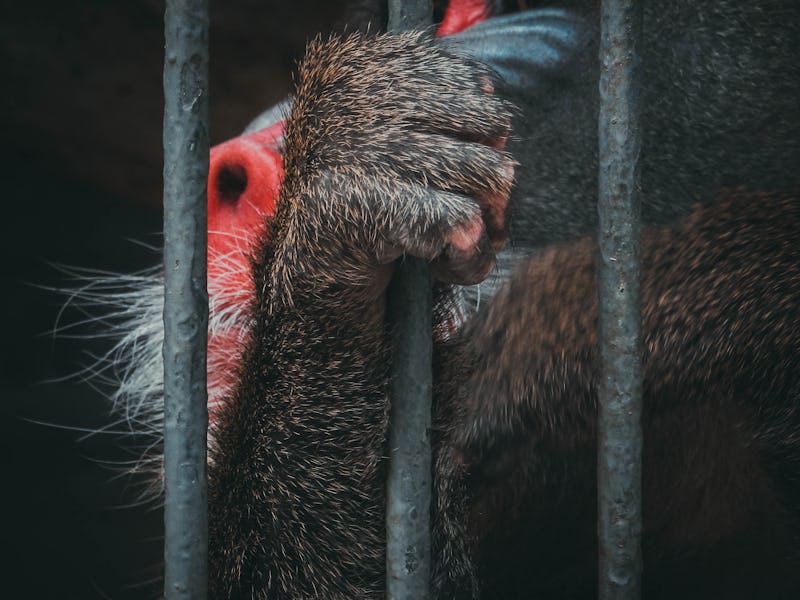Baboons Escape Biomedical Testing Lab for Temporary Freedom
No, it's not a Dreamworks movie.

Four bold baboons escaped from a biomedical testing facility in San Antonio on Saturday afternoon. By turning a 55-gallon barrel upright and climbing on top of it, the baboons were able to leap out of an enclosure that has held primates captive for over 35 years.
Unfortunately for the crafty band of primates, their time on the outside didn’t last long. One of the four returned to its enclosure of its own volition shortly after the getaway, and the other three were rounded up by “animal care staff” within 30 minutes.
One woman captured footage of the apparent jailbreak. In the video, a lone baboon runs along the side of a highway with two people in hot pursuit. Eventually, they were able to chase the primate back into an enclosure without resorting to any force — a fact that seemed to make the Southwest National Primate Research Center (SNPRC) quite proud.
“The animal care team held two of the three baboons to the tree line, while members of the animal capture team followed one baboon along the street and used verbal and hand signaling commands to corral the baboon to the tree line for its safety and efficient capture,” SNPRC veterinarian Dr. John Bernal said in a statement. “Our team was ensuring the baboon was not hurt by traffic on Military Drive.”
But many on social media were quick to point out that the facility’s restraint in recapturing the baboons isn’t very meaningful given the environment to which the baboons were returned, as the baboons at SNPRC are used for medical research. “The baboon is widely used as a model for the study of genetics of complex diseases, and continues as a successful model for many chronic and infectious diseases, including insulin resistance, obesity, heart disease, hypertension and osteoporosis,” SNPRC says on its website.
Others tweeted that the animals were intelligent creatures that deserve rights protecting them from biomedical testing. In many respects, baboons display similar behavior to humans: They seem to prefer a democratic approach when it comes to decision making, and also exhibit some of humans’ more violent, abusive tendencies.
One Twitter user tweeted support for another baboon lab break:
Their freedom was short-lived. But in just 30 minutes, the baboons may have initiated a widespread conversation about the ethics of animal testing.